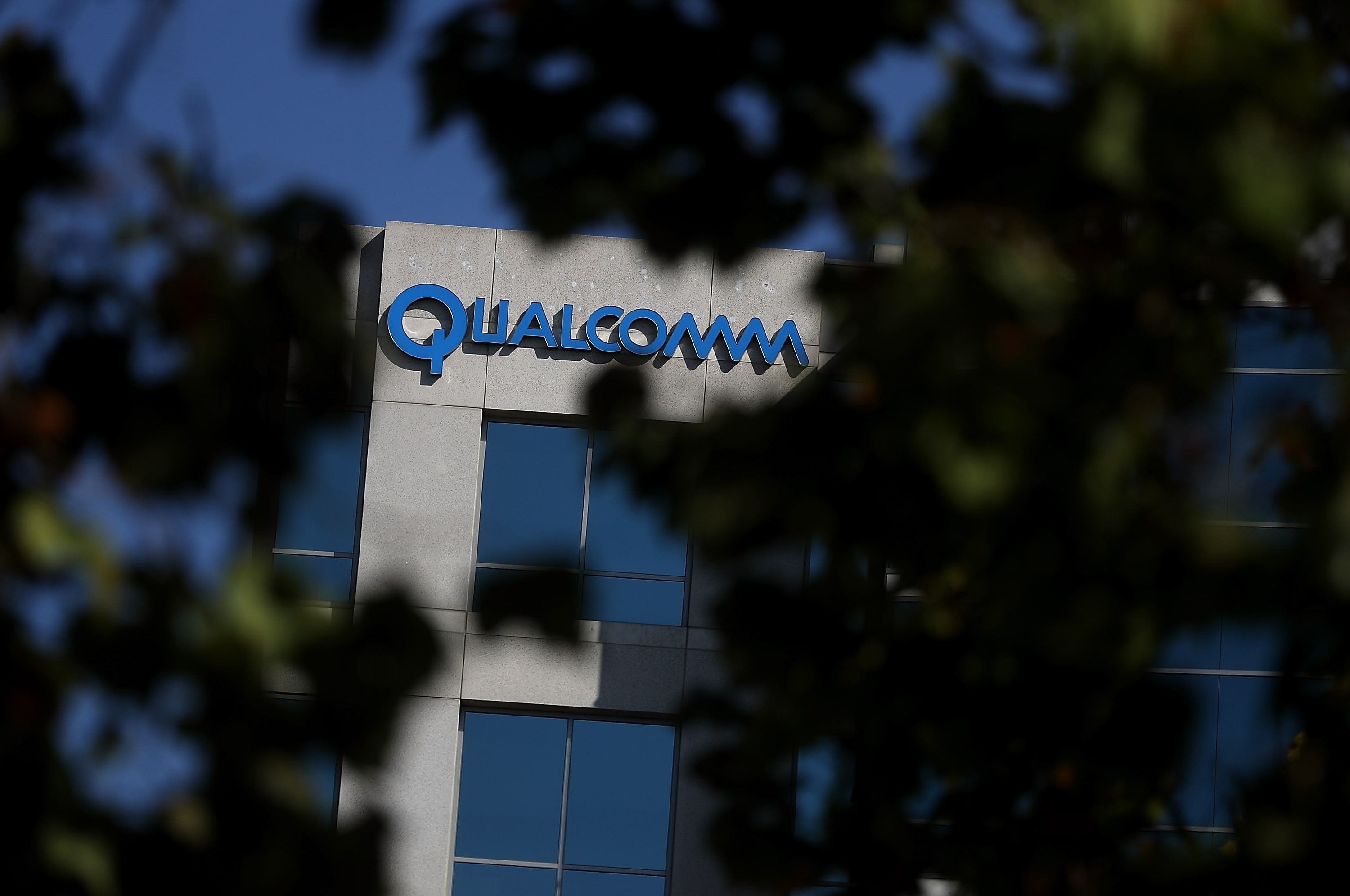
The front of Qualcomm office in San Jose, California.
Justin Sullivan | Getty Images News | Getty Images
U.S. chipmaker Qualcomm has told regulators around the world that it is against Nvidia’s $40 billion acquisition of British chip designer Arm, according to sources familiar with the matter.
The company has told the Federal Trade Commission, the European Commission, the U.K.’s Competition and Markets Authority and China’s State Administration for Market Regulation that it has concerns about Nvidia buying Arm, which is currently owned by Japanese tech giant SoftBank.
The FTC’s investigation has moved to a “second phase” and the U.S. regulator has asked SoftBank, Nvidia and Arm to provide it with more information, according to two sources who are familiar with the deal but wished to remain anonymous due to the private nature of the discussions.
Complying with the information request is likely to take many months as several large documents will need to be produced, the sources said. During the second phase, the FTC will also engage with other companies who may have relevant information that could help it to make a decision, they added.
The European Commission, the EU’s executive arm, and the CMA declined to comment, while the FTC and the SAMR did not immediately respond to a CNBC request for comment.
Qualcomm, which declined to comment on this story, contacted the regulators because it thinks they will play a significant role in determining whether the deal gets completed or not, according to the sources. It has spoken to representatives who focus on antitrust law and mergers.
Nvidia told CNBC it is confident regulators will see the benefits of the acquisition. Arm declined to comment and SoftBank did not immediately respond to a CNBC request for comment.
“You’re looking at a very thorough, a very painful, and a very long investigation,” one of the sources told CNBC.
The Arm wrestle
Arm was spun out of an early computing company called Acorn Computers in 1990. The company’s energy-efficient chip architectures are used in 95% of the world’s smartphones and 95% of the chips designed in China.
The company licenses its chip designs to more than 500 companies who use them to make their own chips.
Qualcomm has opposed the Nvidia takeover because it thinks there’s a very high risk that Nvidia could become a gatekeeper of Arm’s technology and prevent other chipmakers from using Arm’s intellectual property, according to sources. It doesn’t think Nvidia will be able to fully capitalize on the acquisition without crossing certain lines that people are worried about, they said.
When announcing the acquisition, Nvidia and Arm said the deal will create the world’s “premier computing company for the age of AI.” The duo have pledged to keep Arm headquartered in Cambridge, U.K., and invest heavily in the business.
“This combination has tremendous benefits for both companies, our customers, and the industry,” said Nvidia CEO Jensen Huang when the deal was announced.
However, five industry sources, including two tech investors, have told CNBC they think the deal has a very high chance of being blocked by one or more of the regulators.
“At the end of the day, whether this deal is anti-competitive or not, is based on a very simple idea: Arm is an enabler of competition,” the same source told CNBC. “It enables companies to go out and compete. Whether you are MediaTek, Amazon Web Services, Qualcomm, or NXP. Any company — regardless of your R&D (research and development) budget — can take and license from Arm and build their own Arm-based CPU. That is a unique model.”
The source added: “The incentive (for Arm) is to share its technology with as many people as possible, and the only thing they can get in exchange for that is royalties. That creates trust between Arm and its licensees. These licensees feed information to Arm that can (help it to) make better products to enable the next generation (of products) to obtain more revenues. It’s a virtuous cycle.”
Other objectors
On the other side of the Atlantic, AI chip start-up Graphcore has raised concerns with the U.K.’s Competition and Markets Authority. Graphcore CEO Nigel Toon told CNBC in December that Graphcore views the deal as anti-competitive.
“It risks closing down or limiting other companies’ access to leading-edge CPU processor designs which are so important across the technology world, from data centers, to mobile, to cars and in embedded devices of every kind,” he said.
Local chipmakers in China including Huawei have urged Beijing to try to block the deal over fears that they could be at a disadvantage if Arm ends up in the hands of a U.S. company.
An Nvidia spokesperson told CNBC: “As we proceed through the review process, we’re confident that both regulators and customers will see the benefits of our plan to continue Arm’s open licensing model and ensure a transparent, collaborative relationship with Arm’s licensees. Our vision for Arm will help all Arm licensees grow their businesses and expand into new markets.”

